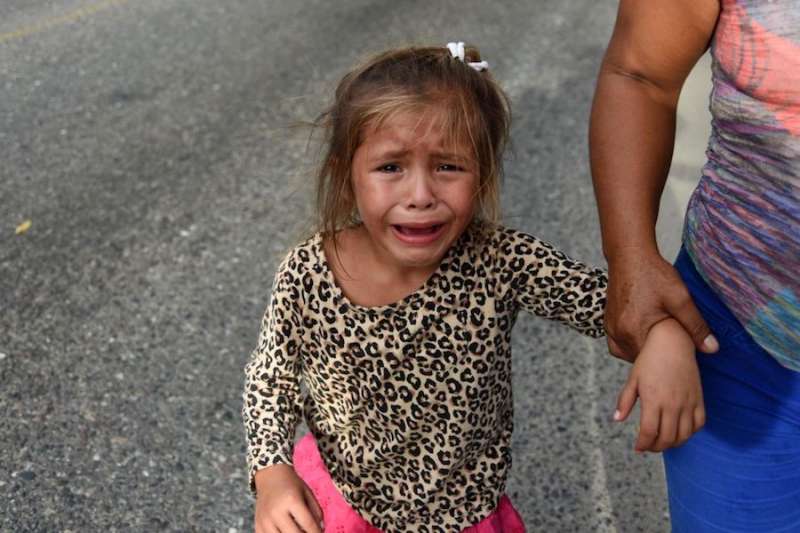At the end of their recent semi-annual meeting, Catholic bishops from dioceses along the Texas-Mexico border lamented the challenges facing migrants and called on governments to welcome newcomers and help them adjust to life in a new country.
“We are filled with mourning that many people seeking a better future have lost their lives” in fleeing their homelands, the bishops said.
From 2015-2018, nearly 4,000 migrants had died or gone missing along the route through Mexico to the U.S., the Associated Press reported.
The bishops said they are also deeply saddened by the uncertainty and rejection facing those requesting asylum, as well as growing racism and discrimination toward foreigners.
“The drama of those who suffer deportation, who see their dreams, efforts, and sacrifices cut short and who return penniless and in debt to dangerous conditions pains us,” they said.
“We shall continue to advocate for the human rights of the poor and of migrants, in particular children and young people,” they continued, calling for immigrants to receive “the possibility of integral development, a decent and peaceful life” in their new homeland.
Bishop from along the Texas-Mexico border met Aug. 30-Sept. 1 in the Mexican diocese of Matamoros, across the U.S. border from Brownsville, Texas.
Attending the meeting from the United States were Bishop Daniel Flores of Brownsville, accompanied by Auxiliary Bishop Mario Avilés and Bishop Emeritus Raymundo Peña, Bishop Gustavo Garcia-Siller of San Antonio, Bishop Mark Seitz of El Paso, Bishop James Tamayo of Laredo, and Bishop Emeritus Michael Pfeifer of San Angelo.
Participating from Mexico were Bishop José Guadalupe Torres Campos of Ciudad Juárez, Bishop Hilario González García of Linares, Bishop Eugenio Lira Rugarcía of Matamoros, Bishop Jesús José Herrera Quiñonez of Nuevo Casas Grandes, Bishop Enrique Sánchez Martínez of Nuevo Laredo, Bishop Alonso Garza Treviño of Piedras Negras, and Bishop Raúl Vera López of Saltillo.
On Aug. 31, the bishops celebrated Mass next to the Rio Grande, which separates the United States and Mexico, and prayed for migrants, living and deceased.
Speaking with ACI Prensa, CNA's Spanish language sister agency, Bishop Eugenio Lira of Matamoros stressed that the reality facing migrants is rapidly changing, “and this requires us to be attentive in order to respond appropriately.”
For example, he said, “in some border towns, the migrants are no longer going so much to the migrant houses [run by the Church], but are instead camping on the bridges so they don't lose their place to have their asylum request processed. This has required us to adapt and go out to them, bringing food and clothing, providing them the support that we can.”
In addition, the Church continues to serve those who come to migrant houses and service centers, he said.
He also stressed that the bishops “will continue our dialogue with the authorities of our countries so that the life, dignity and fundamental rights of all people continue to be respected… and that situations forcing many people to migrate – such as poverty, inequality and violence – will be eliminated.”
The Mexican bishop emphasized that it is key to “continue above all our task of evangelization, which is the best way to create a culture that respects, promotes and defends the life, dignity and rights of all people, particularly migrants.”
Society must realize that they have been entrusted by God with the wellbeing of migrants, he said, “so that we can, as the pope says, welcome them, integrate them, protect them and help them along.”
Evangelization fosters this whole process, Bishop Lira said, “because it leads us to an awareness that we are all children of the same Father, and therefore brothers. We cannot see the other person as some thing, but someone.”
“The invitation that Jesus makes to us to ‘Do unto others as we would have others do unto us’ will always continue to be timely,” he said.
This article was originally published by our sister agency, ACI Prensa. It has been translated and adapted by CNA.

